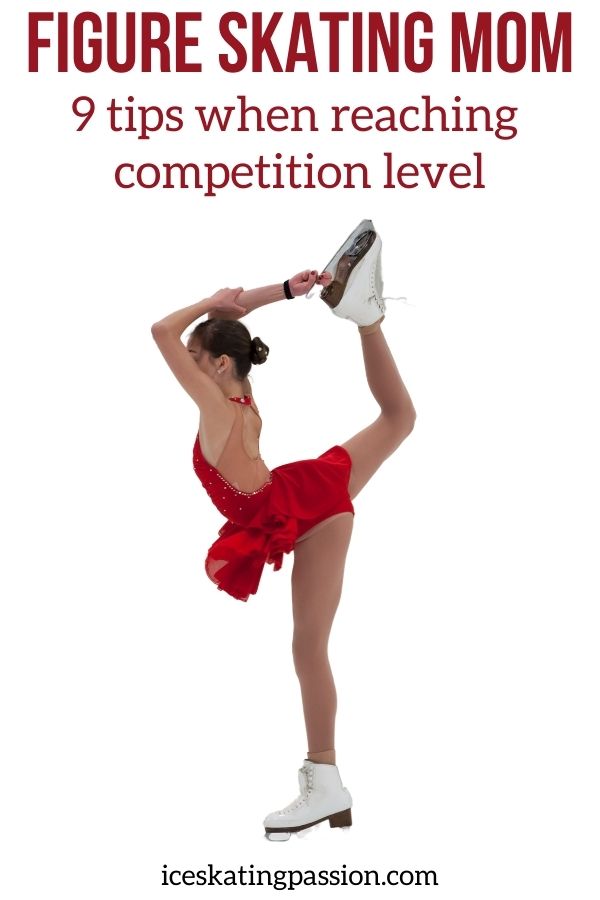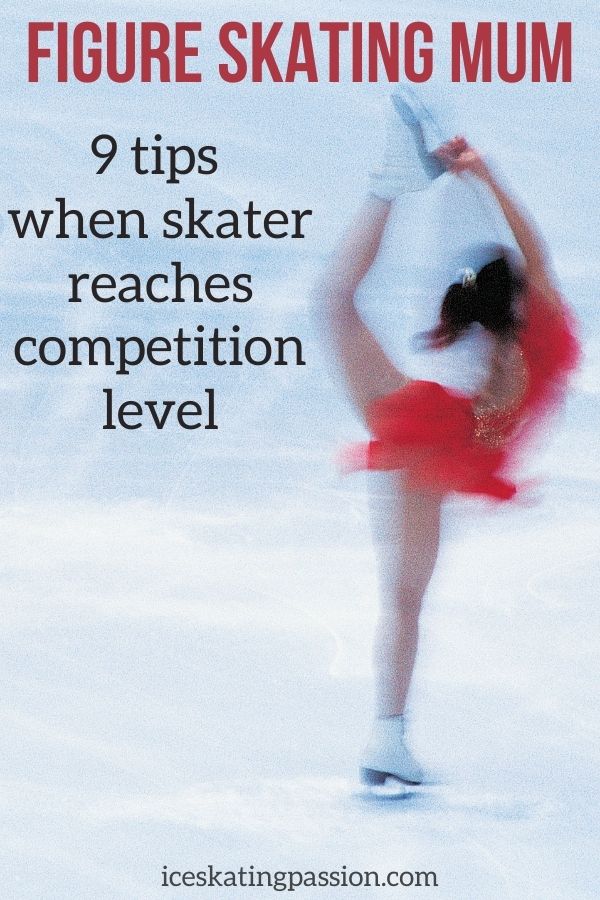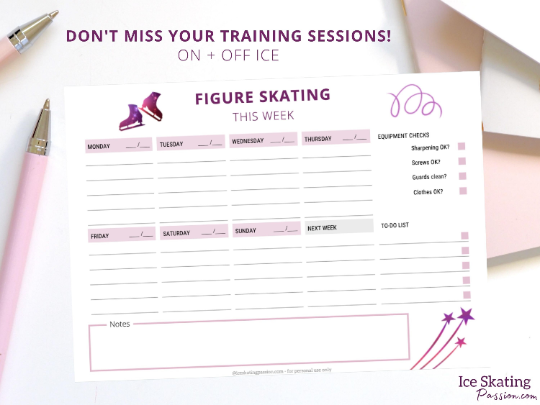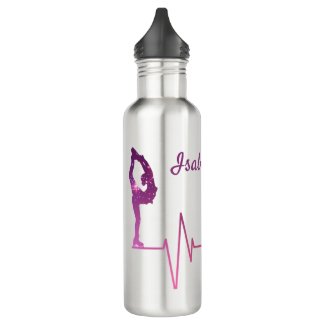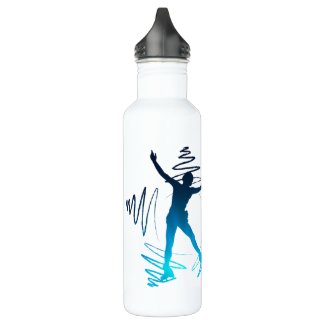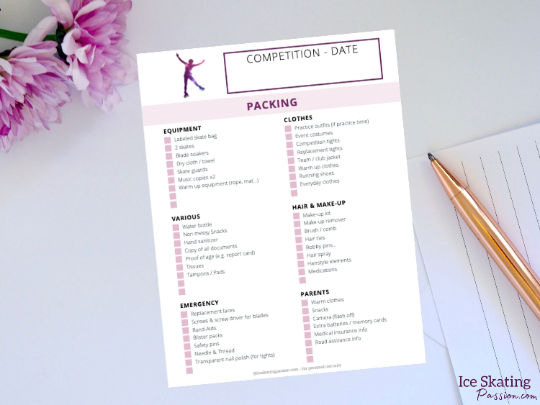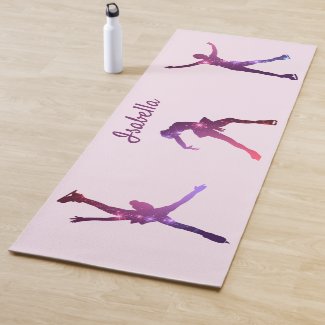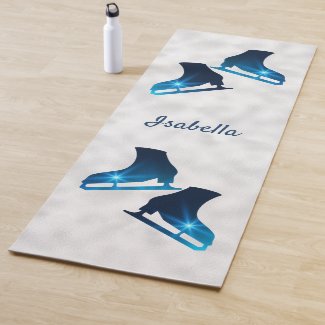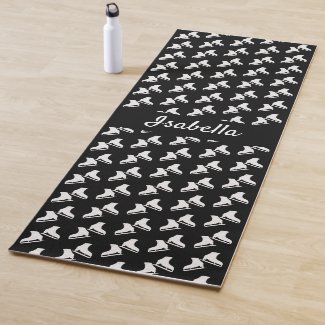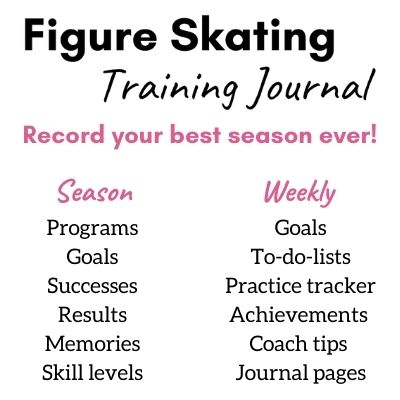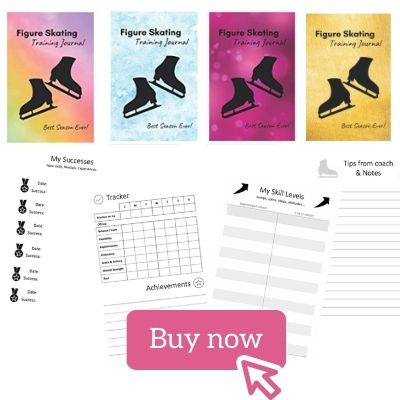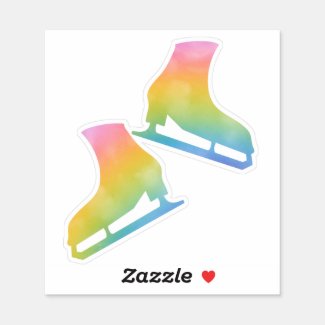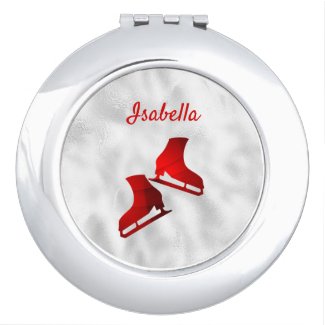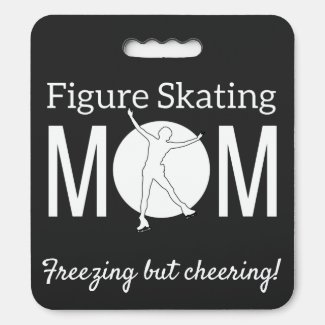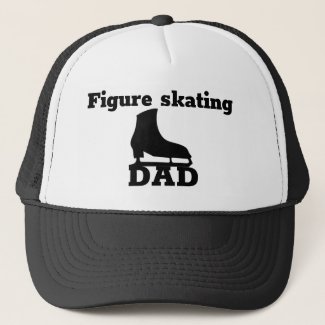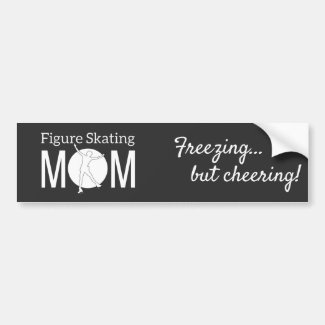So, your little figure skater is now starting competitions. This is exciting! Below are 9 tips for figure skating moms and dads to take care of their skaters and themselves in the sometimes-crazy world of figure skating. You need to offer good balance and opportunities to your kid, behave and also take care of yourself.
Note: if your kid is only starting ice skating, check our my other article with tips for ice skating moms and dads (beginner level).
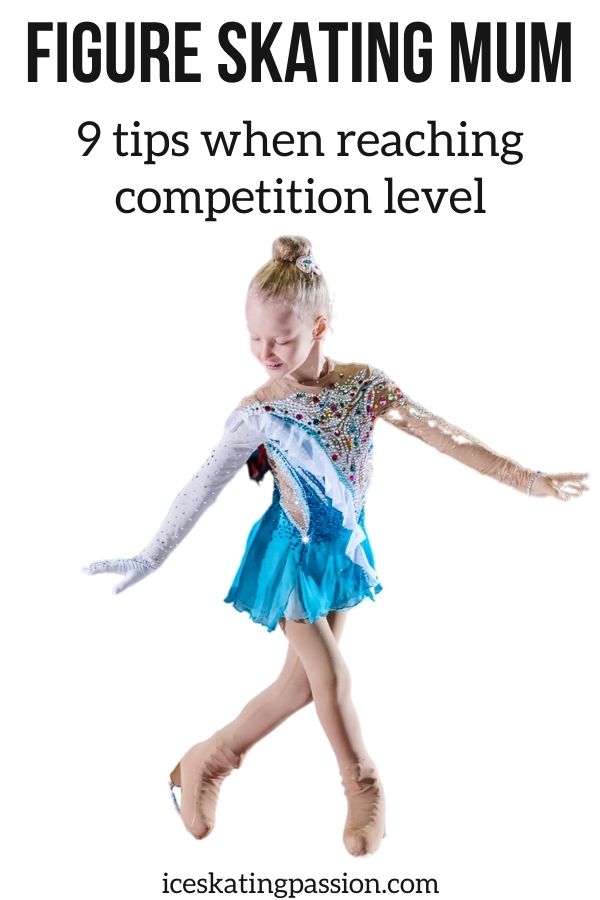
This article contains affiliate links. If you purchase using my link, I get a commission at no extra cost to you (learn more).
#1 Organize to simplify - tip for figure skating moms
Organize lessons:
When something is organized, it is easier to fall into a pattern for all the parties. This makes training easier and better.
Make sure the schedule is balanced, coving both on-ice practice and off-ice training – and if possible, adapt it to your kids’ cycle. Some kids are more alert and happier in the morning, others in the evening.
Always have the schedule up on the fridge or somewhere easily visible for everyone.
For better communication, it can be good to display the weekly schedule with the on-ice and off-ice sessions, as well as other things to do.
Check out my figure skating weekly planner template you can download for personal use:
Organize the bags & equipment:
Establish a routine not to waste any time. It may seem trivial, but it reduces the stress of the day.
Dry out equipment always together and at the same spot near the bag, so as not to forget anything:
- The skates
- The gloves
- The blade towel - see some of my skate towels designs below, and discover more on my shop (they can be personalized)
Create a routine of preparing equipment for next practice:
- Training Clothes are ready and laid out,
- Snacks / meals are ready to be packed,
- Water bottle is open when not in use, and close to the bag to remember to fill it when packing for practice - see some of my bottle designs below, and discover more on my shop (they can be personalized)
Organize for competition:
Competition time can be even more stressful than usual so you must make sure everything is organized as well: costumes, music, skates… (yes ice skates! - I had a friend once who arrived at the competition at a rink, a 2h away drive from home, and then realized she had forgotten her skates).
I have created competition checklists, so that you don’t forget anything (when planning for the competition, when getting ready and when you are at the competition). Get in on my Figure skating competition checklist article - what to do + what to pack.
#2 Keep an eye on time dedicated to figure skating - mums and dads tips
Frequent questions:
- How Much Figure Skating Ice Time Is Too Much?
- Is one required to skate every day of the week, if they want to feature in a national skating competition?
- Is Natural talent is enough or can rigorous practice can make that talent shine through?
- What makes the practice too much or too little?
Sorry, there is no one cookie cutter answer to this question. The middle ground is different for everyone. The dilemma is to find the sweet spot.
What to consider:
- Willingness of all
There must be comfort and willingness in all parties involved here – the child, the parent(s), and the coach.
- Rhythm
One can motivate and push the child, but one must understand that no two children are the same. You must figure what’s the rhythm and willingness of your child. If the friend is taking their child to the rink at 6 am doesn’t mean that your child will thrive like this as well. Don’t force anything. Some kids do better in the morning, other in the afternoon.

- Objective
Another important consideration is, what do you want the practice for – is a competition coming up? Is it an important competition?
- Coach values
See what the coach tells you. Some coaches will demand only the most sacrificing skaters. Others are fine with a progression in the sport at the child’s pace. The values of the coach and the family must match, else the training will always be imbalanced. The coach also decides ice-time on the basis of the child’s level of learning. He also evaluates the capacity of the child to learn.
- Rest
Needs are different. More ice time does not necessarily mean better performance. The child must be trained as well as rested. Happy skaters are always better skaters.
#3 Check the skater's body for potential injury beginnings
Figure skating is a demanding sport. You should make sure your skater's body is well taken care of:
- Remind your kid to stretch - it takes care of the soreness and muscular issues. It shouldn’t be ignored.
- Check and see if they need medical help anywhere. Never overlook injury or even the slightest discomfort as it can become severe and serious.
Check these signs as they can be red flags:
- Bumps around the foot (bunions, calluses and blisters)
These can be painful. They develop because of the pressure of the boots on the foot bones. You can treat them simply by buying proper skates, avoiding tight lacing, and buying donut padding for the blisters/calluses. - Malleolar bursitis
It is the swelling in inner part of the ankle bone. It happens due to the pressure of the skating boots, especially when the ankle has a tendency to lean inwards. You can add padding to diminish the issue. Fixing the blade slightly off-center on the boot can also help. - Achilles Tendonitis
This can happen if there is a lot of jumping in off-ice sessions. The stiffness of the boots causes excessive tension in the Achilles tendon. Repeat stretching exercises of the calf and Achilles as a preventive measure. - Ankle Sprain
This happens when there is less ankle support. The ankle muscles must support the stiff shoes for a prolonged period of time. This weakens the muscles. Carry out ankle strengthening and balancing exercises. - Knee injuries
Figure skating requires a lot of repetitive knee movements. When the front of the knee pains especially during or after jumps, spins etc. You can treat this by limiting the number of high impact activities and thigh strengthening exercises (working on quadriceps and hamstrings).
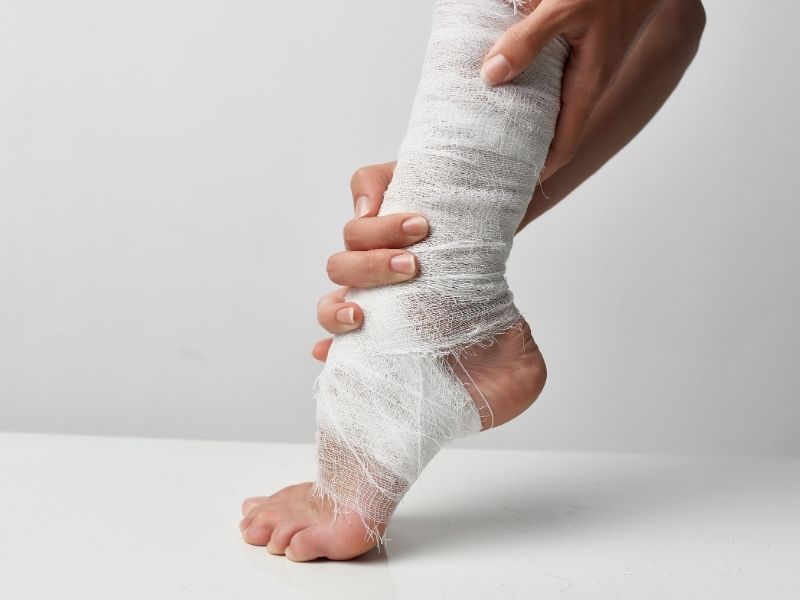
And make sure your skater warms up and stretches
Warming up before and stretching after any activity should be an automatism. We are not taught this enough.
Sports is all about muscle performance, and this can increase, and injury be avoided if warm-up and stretching are done properly.
Make sure to do a few exercises with your kid:
Warm up with a few
- Squats,
- Rotations of the back,
- Rotation of the shoulders,
- Rotations of the neck
And Stretch especially:
- The thighs (there is a lot of ups and downs in ice skating)
- The calves
If you make it an automatism for your kid to do those things before and after a sport session, this is a huge win!
You can find my figure skating stretching routines in this article (for both warm-up and post-practice).
This is essential to prevent injuries. You can also check out my article about figure skating protective gear, to increase safety.
And you probably need a yoga mat to stretch and do core exercises. Make it fun with a personalized one! See all my available designs and colors here.
#4 Ask frequently - is my kid still into it?
A healthy body will work wonders if the mind that drives it is healthy too.
Make sure to look for signs that you child is not happy ice skating anymore. If these signs arise, discussion must happen:
- They look miserable
All kids may go through times when they are loving their sport. So much hard work or the demands it makes on their life are resentful but if this is a permanent feeling, you must talk. - They feel major anxiety
A little bit of performance anxiety is normal. But check for signs of more: anxiety before practice, schoolwork suffering, difficulty focusing, restlessness - They don't have the spark anymore
Is your kid still smiling when talking about practice and tricks, are his/her eyes still sparkling? - They don’t get along with their coach
If there is a problem in the relationship between your child and their coach it might be a sign that something is wrong. - They say they don’t want to skate anymore
Don’t dismiss it if the child has found the voice to say it to you openly. Listen to the reasons and explore ideas for what they want to do next. Discuss. Find out if it is a temporary issue or an issue with a specific element of skating or if it is an overall change of heart.
Remember: You may have invested a lot in the sport, but the fact that the skater is stopping does not mean you wasted your time and money. All that has been learnt during practice and competition will stay with your kid: hard work, get-back-up attitude... check out my article about the life skills learnt from figure skating.
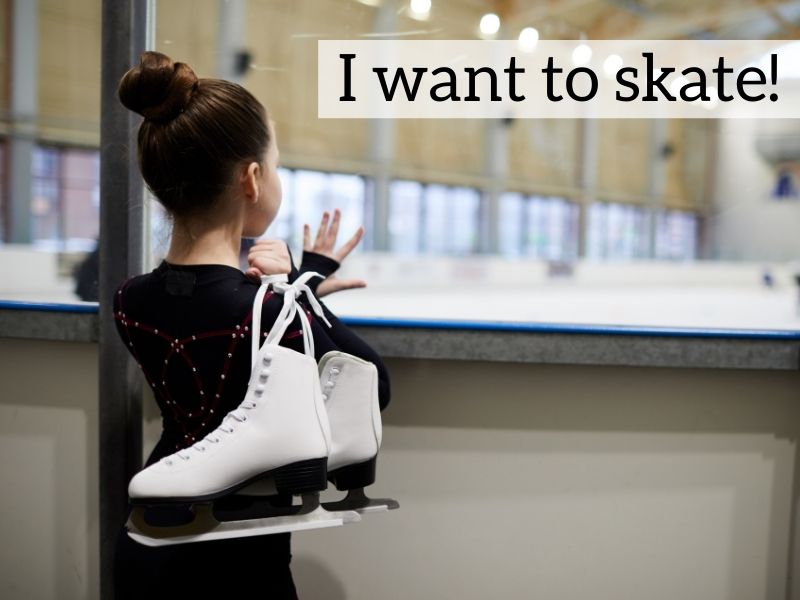
#5 Prepare balanced meals
This is a topic that is often neglected but must be considered properly.
Nutrition is essential for performance.
Give your child a balanced, healthy diet and let them eat, listening to their body for fullness. Never go to practice on an overly full or empty stomach.
I am not a nutritionist, and opinions vary on the subject. So, I won't give you details but my opinion is: "everything, but everything in moderation".
#6 Keep an eye but don't interfere with practice
There are 2 essential points to remember when at practice:
- Do not try being the coach – let the coach do his job.
- Do not discuss with the coach when your child is around.
Things to do
- Regularly check how the coach and kids are getting along on the ice
- Take a breather - if the competitive environment within the parent group is getting crazy, just go out and breathe
- Check-in regularly with the coach to see what should be adapted
- Have a chat with the coach away from your child. Talk about how ready your skater is for the up-coming event and try to get a feel for what the goal of this particular competition is. Not every competition is about winning so it's important to understand the goal of the event. This will help you be your most supportive
- Play a role in choosing the program music, but let your skater / coach make the decision. Don't push the music you like. Your kid must be the one getting emotion from it - see my tips to choose figure skating music.
- Make sure you understand the figure skating levels and what to expect
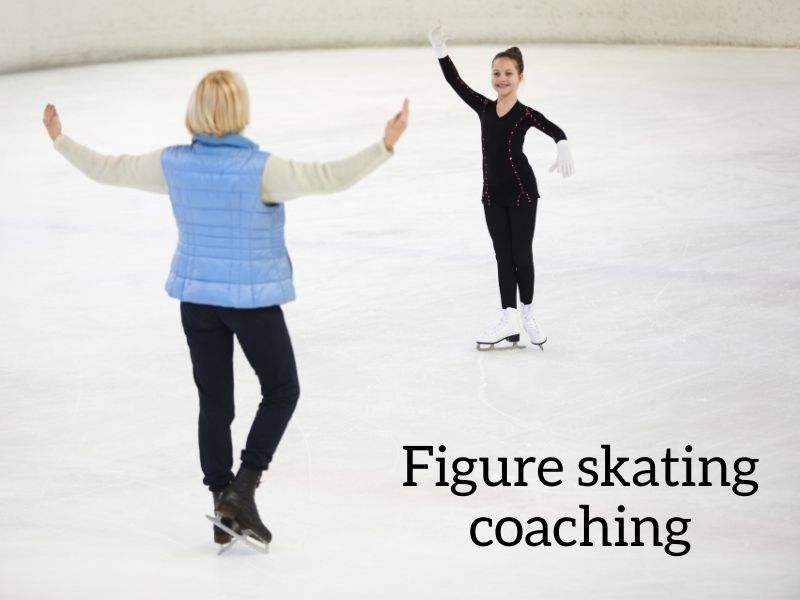
How not to behave – the type of parent you do not want to be
- Don’t be a pushy ‘future Olympian’ parent: You can motivate but don’t press for results, for beating everyone at the competition or being overly aggressive.
- Don’t be the "but my kid does this or that" parent: Although an individual sport, kids practice with other skaters. Make sure you are inculcating team spirit.
- Don’t be the Expert know-better parent: You don't know better than the coach, the judges, the club management etc. You can make suggestions in a positive way though.
- Don’t be the Critic parent: don’t complain all the time and don’t be overly critical of the coach or the club. Believe me, it is not easy. My mom has been club president for 8 years. It is not an easy task with "just do it" solutions.
#7 Keep it positive at competitions
Your kid is starting to compete. This is exciting!
But be sure to not get carried away.
I have been competing for over 11 years with at least 12 competitions a year. And then I was a judge. I have seen all kinds of parents!
My recommendations are:
- Stay positive - the most important is that your kid gives his/her best and has fun
- Congratulate your kid – whatever happened, you should point out what went well
- Applaud the other kids
- Always stay calm - judges are humans and they can make mistakes. I can tell you that keeping focused during a long series of program so as not to miss a single second is difficult. This one of the reasons why I stopped judging. I was scared to give an unfair mark.
- Don’t blame the equipment, coach, other players, judges or even the weather if your child does not do well. Blaming others teaches non-accountability to kids.
- Make sure your kid journal his/her goals, successes, memories, emotions... Look at my collection of notebooks and journals.
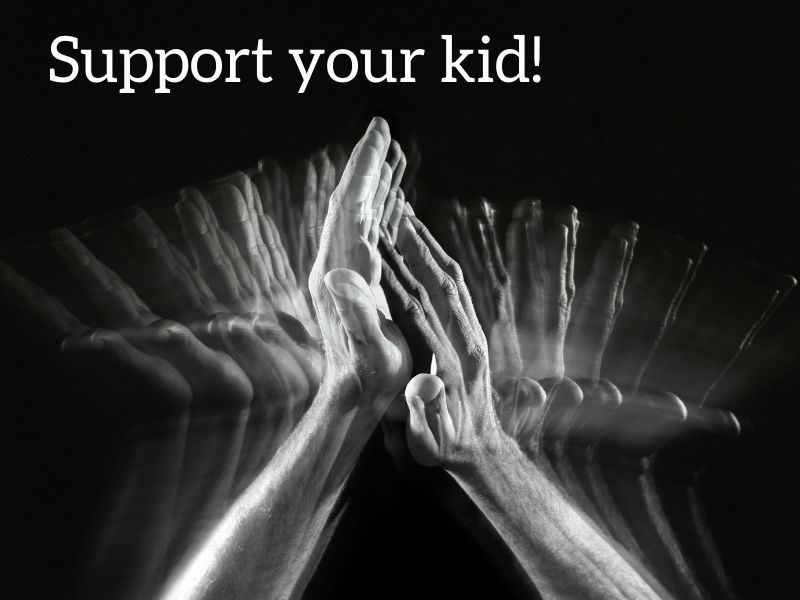
#8 Take care of yourselves too - tips for figure skating parents
- Take care of your finances
Ice skating is an expensive sport that demands a lot of expenditure on skates, costumes, travels, coach fees etc. Take care and spend according to pocket.
Be honest with your kid. Discuss what can be done and not done, what is most important. Teaching kids healthy finance young is a skill they will forever use. Don’t build a stress-based association of the sport in the kids’ mind.
- Bring warm clothes and seat cushion
Waiting at the rink can be long and cold. Make sure you are comfortable with warm clothes, a warm drink and maybe a seat cushion!
- Don't enter the game of some parents
You should stay in the car if need be – The competition between parents is way worse than between the kids. Some will try playing mind tricks. Do not waste your mental energy on those.
Or even just simply being around people complaining will bring you down. You have to be involved in your kid’s sport, but you don’t have to spend all the training time with the other parents.
Surround yourself with your kid's passion!
#9 Make sure you have other interests as a figure skating family
Sometimes, the passion for a sport can overtake the whole family with many training sessions, finances all centered towards it and competitions every weekend.
Make sure to keep some balance and have other interest as a family – other activities, or simple time together in a park every Sunday…
You might also be interested in:
